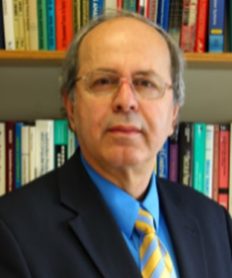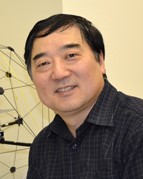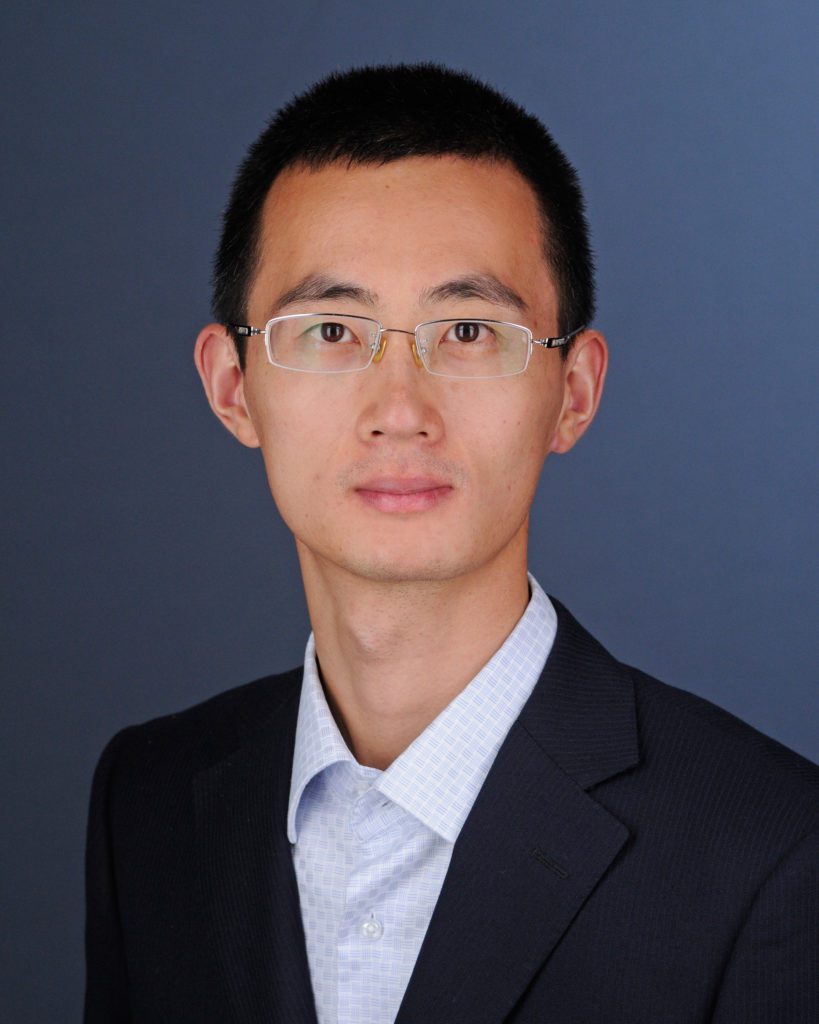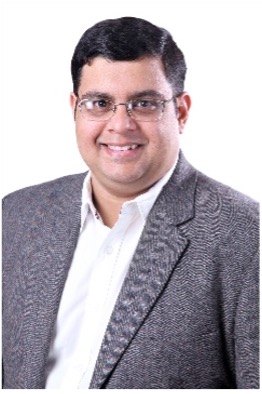Room 1: Zoom Meeting ID: 812 2450 2471 Password: 039915
Link: https://uvic.zoom.us/j/81224502471?pwd=V3JQbmw3NHcxeFlySDJHOGRMQ1JLdz09
Prof. Kamal Al-Haddad, École de Technologie Supérieure

Electric Energy Conversion New Challenges and Constraints
Monday, December 5, 2022, 8:10 – 9:00 am (PST)
Abstract: This presentation will discuss the new challenges for the electric energy network operating under many constraints impact pushed by climate changes and the ever increase of renewable energy sources connected to the electric grid. Several converter topologies along with new concepts will be presented and discussed during the presentation. Moreover, some case studies which permit to enhance the need for direct filter-less connection between the distributed energy sources and the electric network strengthening therefore the idea of using less reactive components for better Green House emission signature.
Bio: Professor Kamal Al-Haddad received the B.Sc.A. and M.Sc.A. degrees from the University of Québec à Trois-Rivières, Canada, in 1982 and 1984, respectively, and the Ph.D. degree from the Institute National Polytechnique, Toulouse, France, in 1988. Since June 1990, he has been a Professor with the Electrical Engineering Department, École de Technologie Supérieure (ÉTS), Montreal, QC, Canada where he has been the holder of the senior Canada Research Chair in Electric Energy Conversion and Power Electronics since 2002. He is a Consultant and has established very solid link with many Canadian and international industries working in the field of power electronics, electric transportation, aeronautics, and telecommunications. He successfully transferred and implemented dozens of technologies to Canadian and international companies. His fields of interest are in highly efficient static power converters, harmonics and reactive power control using hybrid filters, voltage level multiplier, resonant and multilevel converters including the modeling, control, and development of prototypes for various industrial applications in electric traction, renewable energy, power supplies for drives, telecommunication, etc. Prof. Al-Haddad is a member of the Academy of Sciences and fellow of the Royal Society of Canada and a fellow member of the Canadian Academy of Engineering. He is IEEE IES President 2016-2017, Associate editor of the Transactions on Industrial Informatics, IES Distinguished Lecturer and recipient of the 2014 IEEE IES Dr.-Ing. Eugene Mittelmann Achievement Award. He has been elected the IEEE 2022 division VI director elect.
Prof. Youmin Zhang, Concordia University

Towards Smarter, Safer, More Reliable and More Resilient Energy and Autonomous Systems under the Framework of Cyber-Physical Systems
Monday, December 5, 2022, 9:10 – 10:00 am (PST)
Abstract: Although the concepts and developments on Fault Detection and Diagnosis (FDD) and Fault-Tolerant Control (FTC) have been progressively and extensively investigated worldwide since the 1970s and 1980s, respectively, the recent catastrophic crashes of two Boeing 737 MAX8 airplanes in 2019 have again highlighted the necessity and urgency for FDD and FTC research & development and their industrial applications. On the other hand, Smart Grids (SGs, including wind, solar, and hydro energies etc.) and unmanned systems (USs, including Unmanned Aerial Vehicles (UAVs), Unmanned Ground Vehicles (UGVs), Autonomous/Driverless Vehicles (AVs), and other transportation vehicles on the land, on/under the water) are gaining more and more attention and rapid development during the last few years due to their relatively easy and cost-effective uses in various application tasks directly linking to our daily life for cleaner energy, better mobility, and sustainable development while fighting with climate change and global warming issues. These new advancements are benefited significantly from technical advances in communication, computation, control, actuators, sensors, networks and new/smart designs linked to the rapid development under the framework of Cyber-Physical Systems (CPSs) and widely spread Artificial Intelligence (AI) and Deep Neural Network (DNN) learning technologies. Due to a higher level of size and complexity in systems, in particular the added technical challenges due to the involvement of more electronic devices with both hardware and software and with large-scale and distributed networked systems, artificial cyber-attacks through communication networks, along with physical faults, could occur during systems operation, which will all lead to physical damages of the system and thus critical issues on stability, performance, safety, and security of the normal operations of the above-mentioned smart grids and unmanned systems. In this talk, brief overall view on the challenges and latest developments towards smarter, safer, more reliable and more resilient autonomous systems in terms of safe and secure controls of SGs with integration of renewable energies and USs integrating with Remote Sensing (RS) techniques for applications to forest and environment monitoring and fires/damages/risks detection will be presented first, then some of new developments and current research works being carried out at our group will be introduced as the second part of the presentation. In particular, new developments on autonomous control, FDD, FTC, and Fault/Attack-Tolerant Cooperative Control (FTCC) techniques towards autonomous, safe and secure operation and applications of autonomous smart grids and also unmanned systems to the forest fire monitoring tasks in the presence of physical-faults/damages and cyber-attacks will be presented.
Bio: Professor Youmin Zhang is currently a Professor at the Department of Mechanical, Industrial and Aerospace Engineering and the Concordia Institute of Aerospace Design and Innovation (CIADI) at Concordia University, Canada. Dr. Zhang received his B.Sc., M.Sc., and Ph.D. degrees in Automatic Control Department of Northwestern Polytechnical University, Xi’an, China, in 1983, 1986, and 1995, respectively. His main research interests and experience are in the areas of condition monitoring, health management, fault diagnosis and fault-tolerant control systems; cooperative guidance, navigation and control of unmanned aerial/space/ground/marine vehicles with applications to forest fires, pipelines, power lines, wind farms, solar panels arrays, environment, natural resources and natural disasters monitoring, detection, and protection by combining with remote sensing techniques; dynamic systems modeling, estimation, identification and advanced control techniques; and advanced signal processing techniques for diagnosis, prognosis, fault-tolerant and health management of safety-critical systems with application to renewable and hybrid energy systems and smart grids, and smart cities under the framework of cyber-physical systems. He has published 8 books, over 550 journal and conference papers, and book chapters. He was awarded as a Concordia University Research Fellow in the Strategic Research Cluster ‘Technology, Industry and the Environment’ in 2018 in recognition of his outstanding research works and contributions. His research works on developments of unmanned systems with applications to forest fires detection and autonomous transportation have been reported by public media in national (CTV News, Radio-Canada International, Canadian Science Publishing), citywide (La Presse, Ville.Montreal), and organizational (Concordia News, Quanser Inc., Amtek Company) levels several times. Dr. Zhang is a Fellow of CSME, an IEEE Fellow elevated in 2022, President of International Society of Intelligent Unmanned Systems (ISIUS, 2019-2022), Executive Committee Member of International Conference on Unmanned Aircraft Systems (ICUAS), Steering Committee Member of International Symposium on Autonomous Systems (ISAS), and a member of the Technical Committee for several international and national scientific societies. He has been an Editor-in-Chief, an Editor-at-Large, an Editorial Board Member, and Associate Editor of several international journals, including as a Board Member of Governors and Regional Representative (North America) for “Journal of Intelligent & Robotic Systems”, an Editorial Advisory Board Member for “International Journal of Intelligent Unmanned Systems”, Associate Editor for “IEEE Transactions on Industrial Electronics”, “IEEE Transactions on Neural Networks & Learning Systems”, “IEEE Transactions on Circuits and Systems – II: Express Briefs”, “IET Cyber-systems and Robotics”, “Unmanned Systems”, “Industrial Artificial Intelligence”, “Journal of Systems Science and Complexity”, “Chinese Journal of Aeronautics”, “Security and Safety”, Deputy Editor-in-Chief for “Guidance, Navigation and Control” etc. He has served as General Chair, Program Chair of several unmanned systems and renewable energy relevant international conferences, including as a General Chair of 2022 Int. Conf. on Unmanned Aircraft Systems (ICUAS’22) held at Dubrovnik, Croatia during June 21-24, 2022, and an Honorary General Chair of the ICUAS’23 to be held on June 6-9, 2023 at Warsaw, Poland (http://www.uasconferences.com/); a General Chair of the 5th and 6th Int. Symp. on Autonomous Systems (ISAS’22, ISAS’23) held at Hangzhou, China, April 8-10, 2022 and to be held at Nanjing, China, June 23-25, 2023 (http://www.isas-conference.com/); and Program Chair of the IEEE 5th Int. Conf. on Renewable Energy and Power Engineering (REPE’22), Beijing, Sept. 28-30, 2022 (http://www.repe.net/). More detailed information can be found at http://users.encs.concordia.ca/~ymzhang/.
Prof. Huazhen Fang, University of Kansas

What Can We Make Out of Control and Learning for Batteries and Electrification?
Tuesday, December 6, 2022, 7:00 – 8:00 am (PST)
Abstract: We live at the dawn of a new era of electrification – this era is characterized by the wide use of lithium-ion batteries in electrifying key sectors from transportation to renewable energy to grid infrastructure. However, despite their significant merits, lithium-ion batteries still face significant performance and safety concerns. With the concerns come frequent debates over their future role in electrification. An urgent question thus is how to make batteries work better and live up to their maximum potential. Control and learning theories have proven as a useful way to develop promising solutions in response to the question. In this talk, we will first show the challenges arising out of batteries and electrification. Then, we will discuss potential pathways to turn the challenges into exciting opportunities of innovation, especially in modeling, design, and control of high-performance and safety-critical battery systems. The talk will reflect our perspectives on and explorations with the use of systems and control theory, power electronics, and machine learning for advanced battery management.
Bio: Professor Huazhen Fang is an Associate Professor of Mechanical Engineering at the University of Kansas and currently visits the Mitsubishi Electric Research Labs as a faculty fellow. He received his Ph.D. from the University of California, San Diego in 2014, M.Sc. from the University of Saskatchewan, Canada in 2009, and B.Eng from Northwestern Polytechnic University, China in 2006. His research interests lie in control/estimation theory and energy storage systems. He received the 2019 National Science Foundation Faculty Early Career Award. He currently serves as an Associate Editor for IEEE Transactions on Industrial Electronics, IEEE Control Systems Letters and Information Sciences, among others.
Prof. Sheldon S. Williamson, Ontario Tech University

Smart Fast Charging and Wireless Charging Strategies for Electrified Transportation and Autonomous E-mobility
Wednesday, December 7, 2022, 7:00 – 8:00 am (PST)
Abstract: This presentation will review presently available level 3 DC fast charging systems, followed by a brief description and evaluation of DC fast-charging infrastructure. Different power converter topologies and viable configurations will be presented, compared, and evaluated. In addition, several grid-connected as well as PV/grid interface topologies for EV charging will be presented, with detailed comparative points highlighted. The modeling, sizing, design, and implementation of a novel high-efficiency, single-stage PV/grid/EV charging infrastructure will be presented. The talk will also introduce advanced power electronics solutions for rapid charging using wireless power transfer (WPT). Both inductive power transfer (IPT) and capacitive power transfer (CPT) will be introduced and design concepts at various power levels will be demonstrated.
Bio: Professor Sheldon S. Williamson received the Ph.D. (Hons.) degree in electrical engineering from the Illinois Institute of Technology, Chicago, IL, USA, in 2006. He is currently a Professor with the Smart Transportation Electrification and Energy Research Group, within the Department of Electrical, Computer, and Software Engineering, at Ontario Tech University, in Oshawa, Ontario, Canada. Prof. Williamson holds an NSERC Canada Research Chair position in Electric Energy Storage Systems for Transportation Electrification. His current research interests include advanced power electronics, electric energy storage systems, and motor drives for transportation electrification.
